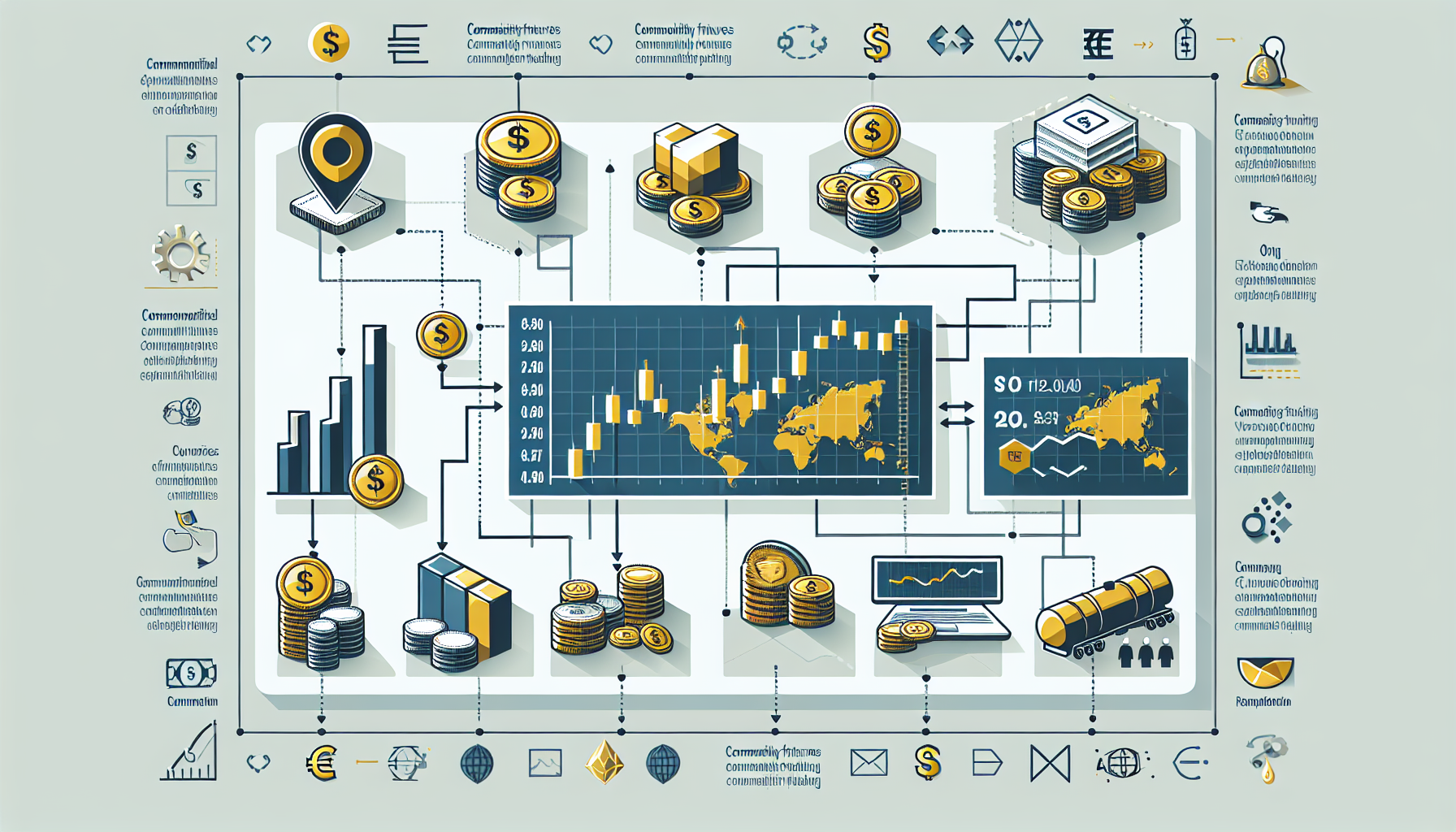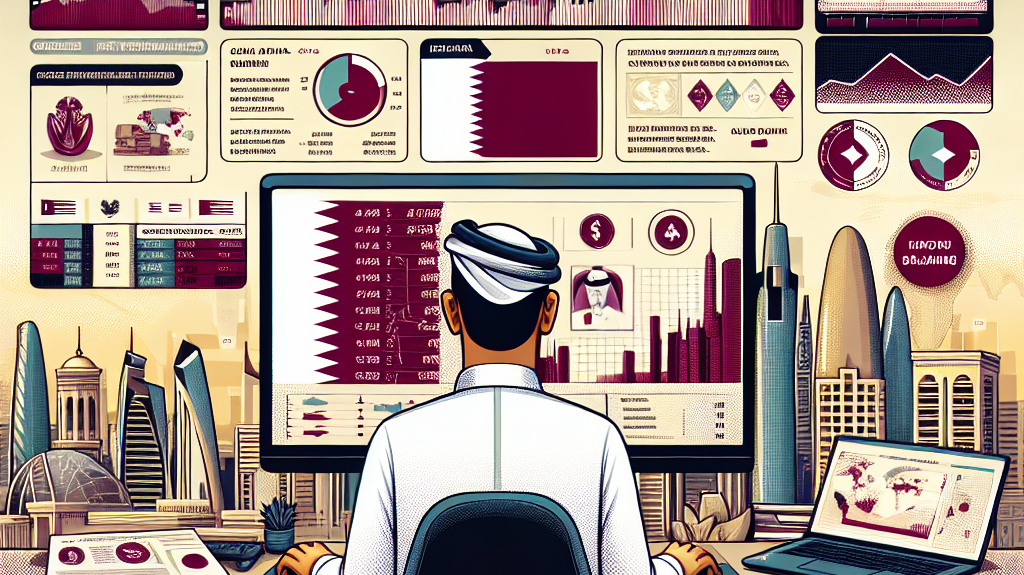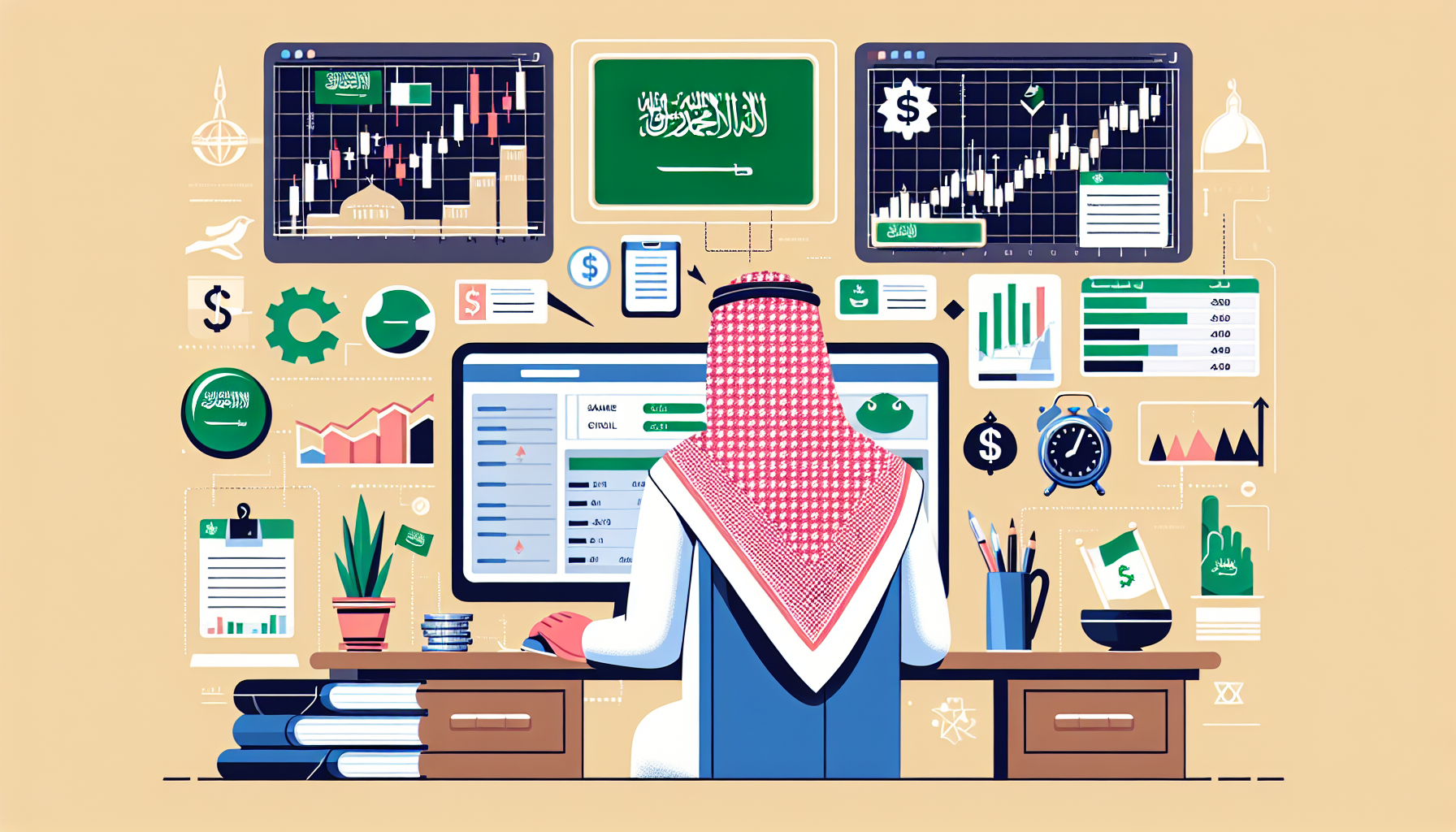
Commodity futures trading is an essential part of global financial markets, allowing investors to speculate on the future prices of raw materials such as oil and gold. In the GCC (Gulf Cooperation Council) region, where oil is a primary economic driver and gold is a preferred asset for investment, understanding commodity futures can open up profitable trading opportunities. This guide will cover the fundamentals of commodity futures, how they work, and how traders in the GCC can engage in oil and gold trading effectively.
At Invettor, we provide expert financial insights to help you make informed investment decisions. Whether you are a beginner or an experienced trader, our goal is to equip you with the knowledge to maximize your wealth and achieve financial freedom. Let’s dive into the details of commodity futures trading in the GCC.
1. What Are Commodity Futures?
Commodity futures are standardized contracts to buy or sell a specific commodity at a predetermined price on a future date. These contracts are traded on futures exchanges and are widely used by traders and investors to hedge against price fluctuations or speculate on market movements.
Key Features of Commodity Futures:
- Standardized Contracts: Futures specify the quantity and quality of the commodity being traded.
- Leverage: Traders can control large positions with a relatively small initial investment.
- Margin Trading: Requires a margin deposit, making futures trading capital-efficient.
- Expiration Dates: Futures contracts have fixed expiration dates that dictate settlement.
- Hedging & Speculation: Used by producers, investors, and speculators to manage price risks.
2. Understanding the GCC Commodity Market
The GCC region is a significant player in the commodity markets, with oil and gold being two of the most traded assets. Understanding regional economic factors, supply-demand dynamics, and geopolitical events can help traders navigate market trends effectively.
Oil Trading in the GCC
Oil is the backbone of the GCC economy, making crude oil futures one of the most actively traded contracts. Oil prices are influenced by global supply-demand trends, geopolitical tensions, and OPEC+ production decisions.
Major Oil Benchmarks:
- Brent Crude: Used as a benchmark for global oil prices.
- WTI (West Texas Intermediate): Primarily traded in the U.S.
- Dubai/Oman Crude: A key benchmark for Middle Eastern oil.
Gold Trading in the GCC
Gold has deep cultural and financial significance in the GCC. It is considered a hedge against inflation and economic uncertainty, making gold futures a popular investment choice.
Factors Affecting Gold Prices:
- U.S. Dollar Strength: Gold is inversely related to the U.S. dollar.
- Inflation & Interest Rates: Rising inflation boosts gold prices.
- Central Bank Reserves: Gold demand is influenced by central bank policies.
- Geopolitical Events: Market uncertainties drive demand for safe-haven assets like gold.
3. How to Trade Oil and Gold Futures in the GCC
Step 1: Choose a Futures Exchange
Traders in the GCC can access commodity futures through international and regional exchanges such as:
- Dubai Mercantile Exchange (DME): Offers Oman crude oil futures.
- Intercontinental Exchange (ICE): Provides Brent Crude futures.
- Chicago Mercantile Exchange (CME): Facilitates gold futures trading.
Step 2: Select a Regulated Broker
To trade commodity futures, traders need to open an account with a regulated broker that provides access to futures exchanges. Ensure the broker offers competitive fees, margin requirements, and robust trading platforms.
Step 3: Analyze the Market
Technical and fundamental analysis is crucial for making informed trading decisions.
- Technical Analysis: Uses price charts, indicators, and trend patterns to predict price movements.
- Fundamental Analysis: Focuses on supply-demand factors, economic reports, and geopolitical news.
Step 4: Develop a Trading Strategy
- Scalping: Short-term trades aiming for small profits.
- Swing Trading: Holding positions for several days based on price trends.
- Hedging: Protecting against price volatility using futures contracts.
Step 5: Manage Risk
Futures trading involves leverage, increasing potential returns but also risks. Risk management techniques include:
- Stop-Loss Orders: Automatically exit trades at predefined loss levels.
- Diversification: Avoid putting all capital into a single asset.
- Position Sizing: Allocate capital based on risk tolerance.
4. Why Binance is a Popular Platform for Commodity Trading
While traditional futures exchanges dominate commodity trading, Binance offers alternative trading solutions for oil and gold derivatives. Binance’s innovative approach allows traders in the GCC to engage in commodity-backed tokens and futures trading with lower fees and high liquidity.
Key Benefits of Trading Commodities on Binance:
- Low Trading Fees: More cost-effective than traditional futures brokers.
- Crypto-Powered Trading: Trade commodity-backed tokens like tokenized gold.
- High Liquidity: Ensures seamless trade execution.
- User-Friendly Interface: Accessible for both beginners and professional traders.
Why Trust Invettor?
At Invettor, we are committed to delivering expert financial insights that empower individuals to make well-informed investment decisions. Whether you’re looking to trade commodity futures, forex, stocks, or cryptocurrencies, we provide the tools and knowledge you need to succeed.
Our content is tailored to help traders in the GCC and beyond navigate the complexities of financial markets, maximize their returns, and achieve financial freedom. Stay connected with Invettor for more expert guidance and market analysis.
Conclusion
Commodity futures trading in the GCC presents significant opportunities for investors looking to trade oil and gold. By understanding how futures contracts work, selecting the right exchanges, and developing sound trading strategies, traders can navigate market fluctuations effectively. Additionally, platforms like Binance offer innovative commodity trading solutions that blend traditional markets with digital finance.
If you found this guide helpful, follow Invettor for more expert insights, trading strategies, and financial education. Let’s work together to build wealth and financial independence!








